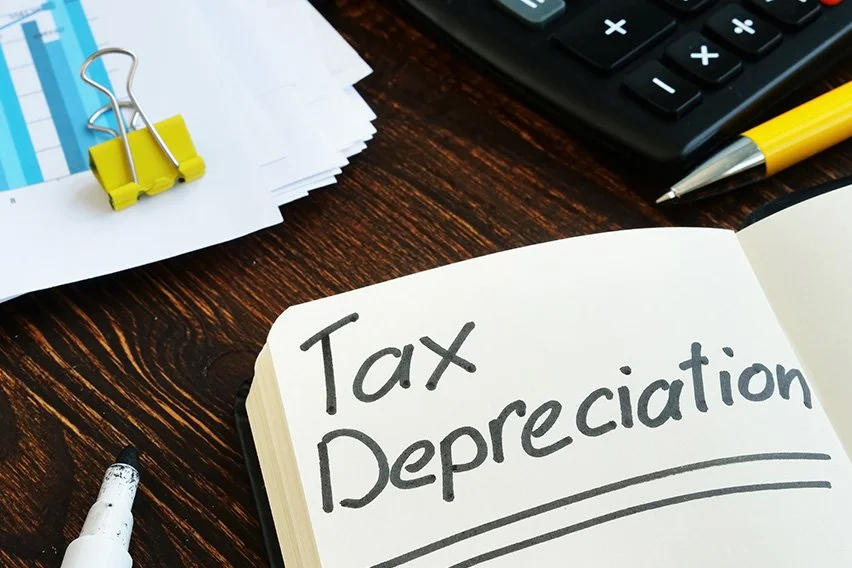Tax Planning for Depreciation
Introduction
Tax planning is a crucial aspect of financial management that helps individuals and businesses minimize tax liabilities legally. One effective tax planning strategy is utilizing depreciation deductions. Depreciation is a non-cash expense that allows businesses to allocate the cost of tangible assets over their useful life, reducing taxable income and thereby lowering the tax burden. Understanding how to plan depreciation effectively can lead to significant tax savings and better financial decision-making.
Definition
Depreciation is the systematic distribution of a tangible asset’s cost over its useful life, recognizing its gradual loss in value due to wear and tear, obsolescence, or other factors. For tax purposes, depreciation deductions allow businesses to recover the cost of capital investments in a structured manner, as per the tax laws applicable in their jurisdiction.
Application of Depreciation in Tax Planning
Tax planning through depreciation involves choosing the most advantageous depreciation method, timing asset purchases strategically, and leveraging government incentives. The following key applications highlight how depreciation aids tax planning:
- Choosing the Right Depreciation Method: Businesses can select from different depreciation methods such as:
- Straight-Line Method: Spreads the cost evenly over the asset’s useful life.
- Declining Balance Method: Accelerates depreciation in the initial years, providing higher deductions upfront.
- Units of Production Method: Depreciation is based on asset usage, ideal for manufacturing equipment.
- Section 179 Deduction (U.S.): Allows immediate expensing of qualifying asset costs in the year of purchase.
- Timing of Asset Purchases: Acquiring assets strategically towards the end of a financial year can allow businesses to claim partial-year depreciation, accelerating deductions and optimizing tax benefits.
- Bonus Depreciation and Incentives: Governments often introduce accelerated depreciation or bonus depreciation to encourage capital investment. Taking advantage of these incentives can enhance tax savings.
- Depreciation Recapture Consideration: When selling depreciated assets, businesses must account for depreciation recapture, which can impact tax liabilities.
Benefits of Tax Planning for Depreciation
Effective tax planning using depreciation provides multiple advantages:
- Reduces Tax Liability: Lowers taxable income, leading to significant tax savings.
- Improves Cash Flow: Less tax outflow means more available funds for reinvestment and operational needs.
- Encourages Capital Investments: Businesses can invest in new technology and infrastructure without excessive tax burdens.
- Ensures Compliance with Tax Laws: Proper planning ensures adherence to regulatory depreciation rules and avoids penalties.
Limitations of Depreciation in Tax Planning
Despite its benefits, depreciation-based tax planning has some limitations:
- Complex Rules and Regulations: Tax laws governing depreciation deductions vary by jurisdiction and require careful interpretation.
- Limited Flexibility: Some assets have predetermined depreciation rates, restricting planning flexibility.
- Depreciation Recapture: When selling depreciated assets, businesses might face additional tax liabilities on recaptured depreciation.
- Cash Flow vs. Paper Expense: While depreciation reduces taxable income, it does not generate actual cash savings, unlike direct deductions.
Comparative Table: Depreciation Methods
| Method | Key Feature | Best For |
|---|---|---|
| Straight-Line Method | Equal depreciation over asset’s life | Stable-cost assets |
| Declining Balance Method | Higher depreciation in early years | Equipment & machinery |
| Units of Production Method | Based on asset usage | Manufacturing industries |
| Section 179 Deduction | Immediate full expensing | Small businesses & startups |
Conclusion
Tax planning for depreciation is a powerful tool for managing financial resources efficiently while ensuring compliance with tax regulations. By selecting the appropriate depreciation method, timing asset acquisitions wisely, and leveraging government incentives, businesses can maximize tax benefits and improve financial stability. However, careful consideration of tax laws and future tax implications is essential to optimize the benefits of depreciation-based tax planning. Engaging tax professionals or financial advisors can further enhance the effectiveness of these strategies, ensuring businesses reap the full advantages while mitigating risks.
For more information visit this site: https://www.mca.gov.in
FAQs
1.What is depreciation?
- Depreciation is the method of spreading the cost of a physical asset over its useful life, accounting for the asset’s decline in value over time
2.Why is depreciation important for tax planning?
- Depreciation reduces taxable income by allowing businesses to deduct the asset’s cost, lowering their tax liability.
3. What types of assets can be depreciated?
- Tangible assets like buildings, machinery, vehicles, and equipment can be depreciated, but intangible assets (like patents) are usually amortized.
4. What are the common methods of depreciation?
- Some common methods are straight-line, declining balance, and units of production. Each has different implications for tax deductions.
5. How does straight-line depreciation work?
- Straight-line depreciation spreads the asset’s cost evenly over its useful life, resulting in consistent annual deductions.
6. What is the declining balance method?
- This method accelerates depreciation, allowing larger deductions in the early years of the asset’s life, which can be beneficial for tax savings.
7. Can businesses change their depreciation method?
- Yes, businesses can change their depreciation method, but they must follow IRS guidelines and may need to file Form 3115.
8. What is Section 179 expensing?
- Section 179 allows businesses to deduct the full cost of qualifying assets in the year they are purchased, rather than spreading the cost over several years.
9. What is bonus depreciation?
- Bonus depreciation allows businesses to take an additional first-year deduction on certain qualifying assets, often set at 100% for new or used property.
10. How should businesses document depreciation?
- Businesses should keep detailed records of asset purchases, depreciation calculations, and any changes in methods to support their tax deductions in case of an audit.
For further details access our website https://vibrantfinserv.com/
To visit: https://www.mca.gov.in/
Contact: 8130555124, 8130045124
Whatsapp: https://wa.me/918130555124
Mail ID: operations@vibrantfinserv.com
Web Link: https://vibrantfinserv.com
FB Link: https://fb.me/vibrantfinserv
Insta Link: https://www.instagram.com/vibrantfinserv2/
For further details access our website https://vibrantfinserv.com

